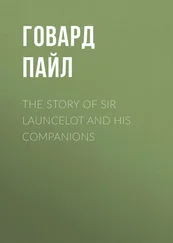Jean Plaidy - Murder Most Royal - The Story of Anne Boleyn and Catherine Howard
Здесь есть возможность читать онлайн «Jean Plaidy - Murder Most Royal - The Story of Anne Boleyn and Catherine Howard» весь текст электронной книги совершенно бесплатно (целиком полную версию без сокращений). В некоторых случаях можно слушать аудио, скачать через торрент в формате fb2 и присутствует краткое содержание. Жанр: Старинная литература, на русском языке. Описание произведения, (предисловие) а так же отзывы посетителей доступны на портале библиотеки ЛибКат.
- Название:Murder Most Royal: The Story of Anne Boleyn and Catherine Howard
- Автор:
- Жанр:
- Год:неизвестен
- ISBN:нет данных
- Рейтинг книги:3 / 5. Голосов: 1
-
Избранное:Добавить в избранное
- Отзывы:
-
Ваша оценка:
- 60
- 1
- 2
- 3
- 4
- 5
Murder Most Royal: The Story of Anne Boleyn and Catherine Howard: краткое содержание, описание и аннотация
Предлагаем к чтению аннотацию, описание, краткое содержание или предисловие (зависит от того, что написал сам автор книги «Murder Most Royal: The Story of Anne Boleyn and Catherine Howard»). Если вы не нашли необходимую информацию о книге — напишите в комментариях, мы постараемся отыскать её.
Murder Most Royal: The Story of Anne Boleyn and Catherine Howard — читать онлайн бесплатно полную книгу (весь текст) целиком
Ниже представлен текст книги, разбитый по страницам. Система сохранения места последней прочитанной страницы, позволяет с удобством читать онлайн бесплатно книгу «Murder Most Royal: The Story of Anne Boleyn and Catherine Howard», без необходимости каждый раз заново искать на чём Вы остановились. Поставьте закладку, и сможете в любой момент перейти на страницу, на которой закончили чтение.
Интервал:
Закладка:
Significantly, and speaking in the parables he so loved to use, Henry made a great show of pointing with his little finger on which was the ring Anne had given him. Wyatt saw the ring, recognized it and was nonplussed; and that again added fuel to Henry’s anger. How dared Wyatt know so well a ring which had been Anne’s! How often, wondered Henry, had he lifted her hand to his lips!
“Wyatt!” said the King; and smiling complacently and significantly: “I tell thee it is mine!”
Wyatt, debonair, careless of consequences, looked for a moment at the ring and with a nonchalant air brought from his pocket the chain on which hung the tablet he had taken from Anne. He said with equal significance to that used by the King: “And if it may please Your Majesty to give me leave to measure the cast with this, I have good hopes yet it will be mine!”
Gracefully he stooped to measure, while Henry, bursting with jealous fury, stood by.
“Ah!” cried Wyatt boldly. “Your Majesty will see that I am right. The game is mine!”
Henry, his face purple with fury, shouted at Wyatt: “It may be so, but then I am deceived!” He left the players staring after him.
“Wyatt,” said Bryan, “you were ever a reckless fool! Why did you make such a pother about a paltry game?”
But Wyatt’s eyes had lost their look of triumph; he shrugged his shoulders. He knew that he had lost, and guessed the ring Anne had given the King to be a symbol.
Henry stormed into the room where Anne was sitting with some of the ladies. The ladies rose at his entrance, curtseyed timidly, and were quick to obey the signal he gave for their departure.
“Your Majesty is angry,” said Anne, alarmed.
“Mistress Anne Boleyn,” said the King, “I would know what there is betwixt thee and Wyatt.”
“I understand not,” she said haughtily. “What should there be?”
“That to make him boast of his success with you.”
“Then he boasts emptily.”
He said: “I would have proof of that.”
She shrugged her shoulders. “You mean that you doubt my words.”
She was as quick to anger as he was, and she had great power over him because, though he was deeply in love with her, she was but in love with the power he could give her, and she was as yet uncertain that this honor was what she asked of life. That was the secret of her power over him. She wavered, swaying away from him, and he, bewitched and enflamed with the strong sexual passion which colored his whole existence, was completely at her mercy.
He said: “Anne, I know well that you would speak the truth. But tell me now with good speed, sweetheart, that there is naught between you and Wyatt.”
“You would blame me,” she said haughtily, “since he writes his verse to me?”
“Nay, sweetheart. I would blame you for nothing. Tell me now that I have naught to fear from this man, and restore my happiness.”
“You have naught to fear from him.”
“He had a jeweled tablet of yours.”
“I remember it. He took it one day; he would not return it, and I, valuing it but little, did not press the matter.”
He sat heavily beside her on the window seat, and put an arm about her.
“You have greatly pleased me, sweetheart. You must excuse my jealousy.”
“I do excuse it,” she said.
“Then all is well.” He kissed her hand hungrily, his eyes asking for much that his lips dared not. He had angered her; he could not risk doing so again, for he sensed the uncertainty in her. Thus he marveled at his infatuation for this girl; as did the court. He had never loved like this; nay, he had never loved before. He was thirty-six, an old thirty-six in some ways, for he lived heartily; this was the last flare-up of youth, and the glow lighted everything about him in fantastic colors. He was the middle-aged man in love with youth; he felt inexpressibly tender towards her; he was obsessed by her; he chafed against the delay of the divorce.
After this affair of the bowls, Anne knew she was committed. Wyatt’s glance was sardonic now; Wyatt was resigned. She had chosen the power and the glory; his rival had tempted her with the bait of marriage.
“And wilt thou leave me thus
That hath loved thee so long
In wealth and woe among:
And is thy heart so strong
As for to leave me thus?”
Her heart must be strong; she must cultivate ambition; she must tread warily, since in that court of glittering men and women she now began to find her enemies, and if their malice was cloaked in soft words, they were nonetheless against her. The Cardinal, watchful and wary; the Duke of Suffolk and his wife—that Mary with whom she had gone to France—who now saw her throwing a shadow over the prospects of their descendants’ claim to the throne; Chapuys, the Spaniard who was more of a spy for his master, the Emperor Charles, than his ambassador; Katharine, the Queen whom she would displace; Mary, the princess who would be branded as illegitimate. All these there were in high places to fight against her. There was a more dangerous enemy still—the people of London. Discontent was rampant in the city; the harvest had been a poor one, and the sober merchants felt that an alliance with France was folly, since it merely changed old friends for new ones who had previously shown they were not to be trusted. There was famine throughout the country, and though the King might lend to the city corn from his own granaries, still the people murmured. The cloth merchants fretted, for the trouble with Spain meant losing the great Flanders market. The County of Kent petitioned the King, in view of their poverty, to repay a loan made to him two years before. The Archbishop of Canterbury did what he could to soothe these people, but they remained restive.
For these troubles did the people of England blame Wolsey. During the prosperous years the King received the homage of his subjects; he had been taken to their hearts during the period of his coronation when he, a magnificent figure of an Englishman, fair and tall and skilled in sport, had ridden among them—such a contrast to his ugly, mean old father. During the dark years, however, they blamed Wolsey; for Wolsey had committed the sin of being of the people and rising above them. The whispers went round: “Which court? Hampton Court or the King’s court?” This was the twilight hour of Wolsey’s brilliant day. And the starving and wretched gazed at a bright and beautiful girl, reclining in her barge or riding out with friends from court; more gaily dressed than the other ladies, she sparkled with rich jewels, presents from the King—a sight to raise the wrath of a starving people. “We’ll have none of Nan Bullen!” they murmured together. “The King’s whore shall not be our Queen. Queen Katharine forever!”
From the choked gutters there arose evil smells; decaying matter lay about for weeks; rats, tame as cats, walked the cobbles; overhanging gables, almost touching across narrow streets, shut out the sun and air, held in the vileness. And in those filthy streets men and women were taken suddenly sick; many died in the streets, the sweat pouring from their bodies; and all men knew that the dreaded sweating sickness had returned to England. Thus did the most sorely afflicted people of London wonder at this evil which had fallen upon them; thus did they murmur against her who by her witch’s fascination had turned the King from his pious ways. The sick and suffering of London whispered her name; the rebellious people of Kent talked of her; in the weaving counties her name was spoken with distaste. Everywhere there was murmuring against the devil’s instrument, Wolsey, and her who had led the King into evil ways and brought down the justice of heaven upon their country. Even at Horsham, where the news of the sweating sickness had not yet reached, they talked of Anne Boleyn. The old Duchess chuckled in great enjoyment of the matter.
Читать дальшеИнтервал:
Закладка:
Похожие книги на «Murder Most Royal: The Story of Anne Boleyn and Catherine Howard»
Представляем Вашему вниманию похожие книги на «Murder Most Royal: The Story of Anne Boleyn and Catherine Howard» списком для выбора. Мы отобрали схожую по названию и смыслу литературу в надежде предоставить читателям больше вариантов отыскать новые, интересные, ещё непрочитанные произведения.
Обсуждение, отзывы о книге «Murder Most Royal: The Story of Anne Boleyn and Catherine Howard» и просто собственные мнения читателей. Оставьте ваши комментарии, напишите, что Вы думаете о произведении, его смысле или главных героях. Укажите что конкретно понравилось, а что нет, и почему Вы так считаете.












